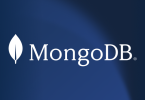Enterprises embracing big data are also seeking out qualified professionals capable of storing, organizing, and accessing their big data stashes. Adding certifications to an IT resume makes it easy for hiring managers and recruiters for these companies to identify which applicants have the proven know-how to utilize and maintain their data. But with so many certifications available, it’s often hard to decide which certification is going to give you the most visibility and set you apart from the competition.
If you are interested in the rapidly growing fields of cloud computing and big data, becoming certified in MongoDB will help you establish the necessary technical credibility with one of the most preferred NoSQL databases on the market. Let’s take a closer look at MongoDB to understand if a certification is what you need to level up your career path and job opportunities and possibly even your payscale.
(This article is part of our MongoDB Guide. Use the right-hand menu to navigate.)
What is MongoDB?
MongoDB is a free, open source cross-platform database management system (DBMS) that qualifies as a NoSQL player. Its flexibility in terms of the supported amounts of data and it’s ease of horizontal scalability and administration, both on-premise and in the cloud, is making enterprises of all types opt for MongoDB as the preferred next generation database. As a modern database-as-a-service platform, MongoDB enables easy and controllable access to data from cloud and non-cloud systems through consistent APIs and drivers. By simplifying access to critical resources, MongoDB contributes to an organization’s proficiency in running applications on the platform. Simply put, MongoDB is a document database with the scalability and flexibility businesses want with the querying and indexing they need.
Here’s more of the key features that make MongoDB one of today’s leading general purpose database platforms designed to help developers build apps faster.
- High availability with replica sets
- Horizontal scalability
- High performance data persistence
- Indexing with primary and secondary indices
- Ad hoc queries for CRUD, data integration, text search, and geospatial q
- Aggregation pipeline
- ACID transactions
- Storage engine
- File storage
- Capped collections
Who uses MongoDB?
Microservice architectures in particular benefit from centralized and easily accessible database resources, as many applications need to access and share data. Data applications that take advantage of centralization, like legacy modernization and analytics, are also fantastic candidates for cloud database usage. While certain use cases are more obvious candidates for cloud database usage, more traditional use cases, like real-time online transaction processing, caching, or data warehousing work just as well in the fully managed paradigm.
MongoDB proudly works with some of the most successful and innovative companies across the globe and across industries with companies like eBay, Google, PayPal, Facebook, Verizon, UPS, and Adobe just to name a few.
Available MongoDB Certifications
Due to incredible demand from developers and database administrators, MongoDB offers certifications and free online training through MongoDB University that provides curriculums designed around two separate credentials.
- Database Administrators (DBAs) are fluent in managing MongoDB, including its run-time configuration, processes, sharding, backup and recovery, monitoring and performance tuning.
- Database Developers are fluent in one or more programming languages, each with its own associated MongoDB driver. They also understand the minutiae of performing MongoDB CRUD (Create, Read, Update and Delete) operations, indexing, aggregation, replication and basic database scaling.
These certifications, according to MongoDB, give developers and DBAs a new means to prove their expertise on MongoDB while helping organizations hire and develop qualified professionals. These credentials recognize individuals with proven knowledge of the concepts and mechanics of the database and practical skills required to build applications backed by MongoDB. Certified professionals go on to serve as leaders, educators, and experts sharing their first-hand knowledge and experience in building and maintaining MongoDB applications.
How to get certified
There are no prerequisites required to take either exam that consists of multiple choice and check all that apply questions.. All you really need is 90 minutes and $150, which is very affordable in the world of continuing education. However, MongoDB does recommend completing any of their free online courses or taking an instructor-led training to familiarizing yourself with the following information:
Required MongoDB knowledge
- Philosophy & Features: Performance, JSON, BSON, fault tolerance, disaster recovery, horizontal scaling, and the Mongo shell
- CRUD: Create, Read, Update, and Delete operations
- Indexing: Single key, compound, multi-key, mechanics, and performance
- Replication: Configuration, oplog concepts, write concern, elections, failover, and deployment to multiple data centers
- Sharding: Components, when to shard, balancing, shard keys, and hashed shard keys
- Application Administration: Data files, journaling, authentication, and authorization
- Server Administration: Performance analysis, storage engines, diagnostics and debugging, maintenance, backup, and recovery
Required General IT Knowledge
- Fundamental database concepts
- Fundamentals of system programming
- Basic JavaScript programming
Is it worth having if you already have other Big Data certifications?
Multi-skilled professionals often command a lot more money than their peers. According to Indeed, Big Data developers who are skilled in frameworks like Hadoop and Apache Spark make a lot more money than professionals who are only skilled in a single framework. This same data also shows that recruiters are hunting for people with a wide variety of analytical skills for specialized projects and job roles. One of the best skills to add to your resume is MongoDB because of how widely it’s used as well as the number of industries and business types who are using it.
Multiskilling adds enhanced expertise to your skill sets as well. For example, IT professionals who frequently work with the framework Hadoop will find MongoDB easy to learn and having a resume that demonstrates you have a thorough understanding of both frameworks can lead you into highly paid niche jobs headhunters are looking to fill.
Adding new and additional skills to your knowledge bank and resume can give you a competitive edge, helping you advance in the Big Data industry. Combining basic certifications and advanced certifications like MongoDB’s can be the key to opening the doors to more lucrative and exciting jobs. If standing out from the sea of IT professionals is a challenge to furthering your career, upskilling your certifications may be the best way to signal your competency in your field. For $150 and the time spent taking some free online courses, MongoDB may be one of the best bargains of your professional career.
These postings are my own and do not necessarily represent BMC's position, strategies, or opinion.
See an error or have a suggestion? Please let us know by emailing blogs@bmc.com.






